- Home›
- Healthy Living›
- World Liver Day - 7 Foods That Are Essential To Maintain Liver Health
World Liver Day - 7 Foods That Are Essential To Maintain Liver Health
By: Priyanka Maheshwari Tue, 18 Apr 2023 4:27:19

World Liver Day is an annual event that takes place on April 19th each year. It is a global campaign that aims to raise awareness about liver health and the importance of liver disease prevention. The day was established by the World Health Organization (WHO) in 2011 to highlight the importance of liver health and to promote liver disease prevention.
The liver is a vital organ in the body that performs many functions, including detoxification, protein synthesis, and regulation of cholesterol and blood sugar levels. Liver disease is a growing global health concern, with millions of people worldwide suffering from liver disease, such as hepatitis, liver cancer, and cirrhosis.
World Liver Day provides an opportunity to raise awareness about liver health and to encourage people to take steps to prevent liver disease. Activities that take place on World Liver Day include educational seminars, health fairs, and public awareness campaigns. The day also provides an opportunity for healthcare professionals to discuss liver disease prevention and treatment with their patients. In this article we are sharing with you 7 foods that are essential to maintain liver health:
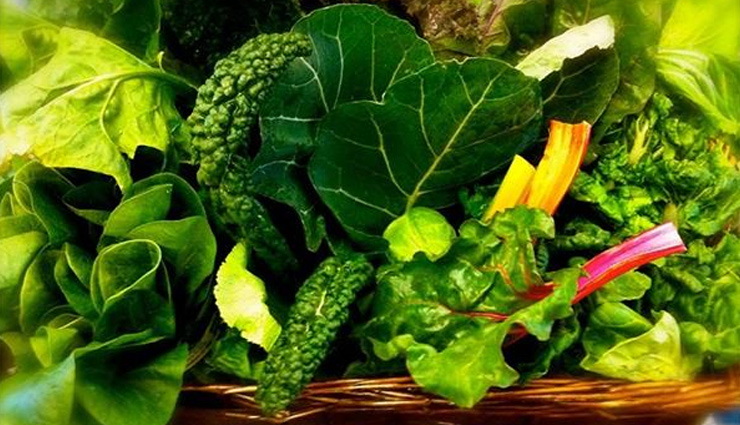
# Leafy Greens
Leafy greens are one of the best foods to maintain liver health. They are rich in antioxidants and nutrients that help protect the liver from damage and support its detoxification process. Some examples of leafy greens that are particularly beneficial for liver health include:
Spinach: Spinach is rich in antioxidants like vitamin C, vitamin E, and beta-carotene, which can help protect the liver from damage caused by free radicals. It also contains iron and folate, which support liver function.
Kale: Kale is rich in vitamins A, C, and K, as well as antioxidants that can help protect the liver from damage. It also contains chlorophyll, which helps remove toxins from the liver.
Arugula: Arugula is a peppery leafy green that contains high levels of chlorophyll and other antioxidants that help protect the liver from damage. It also contains nitrates, which can help improve blood flow to the liver.
Beet Greens: Beet greens are rich in antioxidants like vitamin C and beta-carotene, as well as nutrients like magnesium and potassium, which can help support liver function.
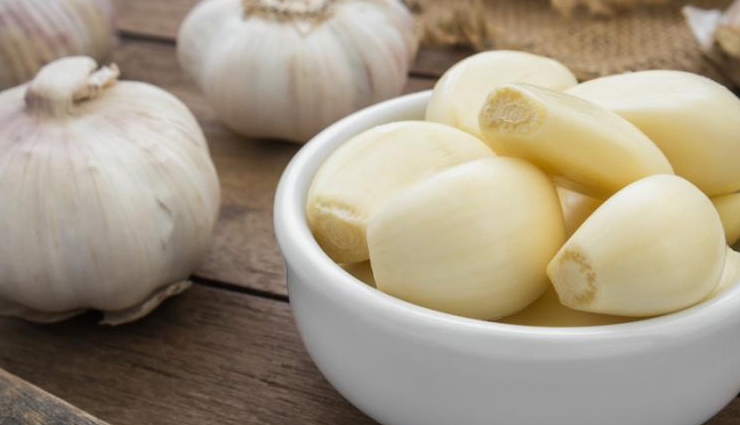
# Garlic
Garlic is a potent food that can help maintain liver health. It contains a compound called allicin, which has been shown to have anti-inflammatory properties that can help reduce inflammation in the liver. In addition, garlic contains high levels of selenium, a mineral that is essential for liver function and health. Here are some ways in which garlic can help maintain liver health:
Anti-inflammatory properties: Chronic inflammation in the liver can lead to liver damage and disease. Garlic's anti-inflammatory properties can help reduce inflammation in the liver, which can help protect the liver from damage.
Detoxification support: Garlic contains sulfur compounds that support the liver's detoxification process. These compounds help the liver flush out toxins and other harmful substances from the body.
Antioxidant properties: Garlic is a rich source of antioxidants that can help protect the liver from damage caused by free radicals. These antioxidants can help prevent oxidative stress and damage in the liver, which can contribute to liver disease.
To incorporate garlic into your diet, you can add it to your meals as a seasoning or use it in marinades or dressings. Raw garlic has the most potent health benefits, but it can also be taken in supplement form.
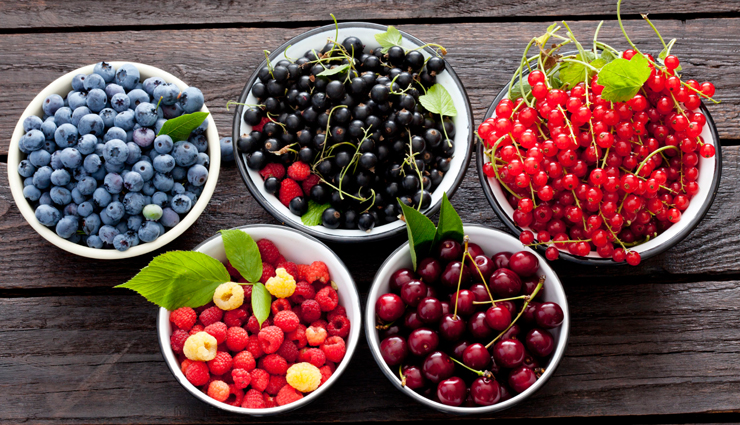
# Berries
Berries are a delicious and nutritious food that can help maintain liver health. They are rich in antioxidants, fiber, and other beneficial nutrients that can help protect the liver from damage and support its detoxification process. Here are some ways in which berries can help maintain liver health:
Antioxidant properties: Berries are rich in antioxidants, which can help protect the liver from damage caused by free radicals. Free radicals are unstable molecules that can cause oxidative stress and damage in the liver, which can contribute to liver disease.
Fiber content: Berries are high in fiber, which can help support the liver's detoxification process. Fiber helps the liver flush out toxins and other harmful substances from the body.
Anti-inflammatory properties: Berries contain anti-inflammatory compounds that can help reduce inflammation in the liver. Chronic inflammation in the liver can lead to liver damage and disease, so reducing inflammation can help protect the liver.
Some examples of berries that are particularly beneficial for liver health include blueberries, raspberries, strawberries, and blackberries. These can be easily incorporated into your diet by adding them to smoothies, yogurt, or oatmeal, or simply eating them as a snack. By including berries in your diet, you can support liver health and improve overall health and wellness.
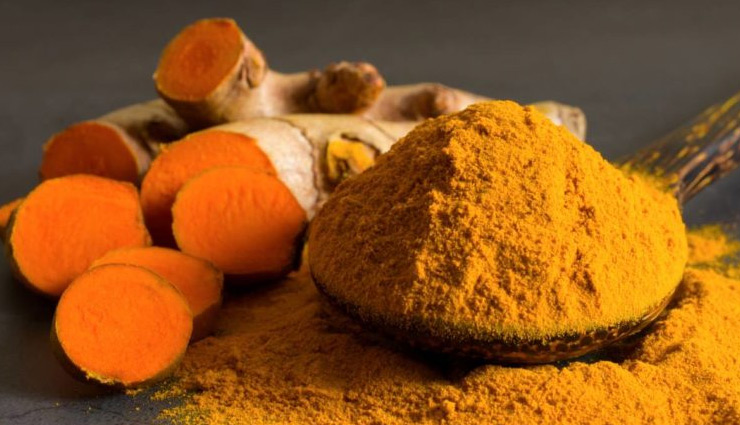
# Turmeric
Turmeric is a powerful spice that has been used for centuries for its medicinal properties. It contains a compound called curcumin, which has anti-inflammatory and antioxidant properties that can help maintain liver health. Here are some ways in which turmeric can help maintain liver health:
Anti-inflammatory properties: Turmeric's anti-inflammatory properties can help reduce inflammation in the liver, which can protect the liver from damage and disease.
Antioxidant properties: Turmeric is a potent antioxidant that can help protect the liver from damage caused by free radicals. Free radicals can cause oxidative stress and damage in the liver, which can contribute to liver disease.
Detoxification support: Turmeric can support the liver's detoxification process by increasing the production of enzymes that help flush out toxins and other harmful substances from the body.
Turmeric can be easily incorporated into your diet by adding it to your meals as a spice or using it in recipes such as curries, soups, or stir-fries. It can also be taken as a supplement in capsule form. However, it's always best to speak with a healthcare provider before starting any new supplement regimen. By including turmeric in your diet, you can support liver health and improve overall health and wellness.
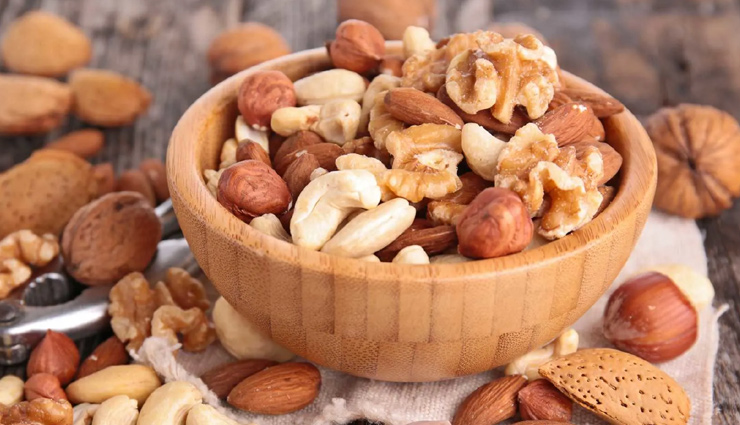
# Nuts
Nuts are a nutritious and tasty food that can help maintain liver health. They are high in healthy fats, protein, fiber, and other beneficial nutrients that can support liver function and health. Here are some ways in which nuts can help maintain liver health:
Healthy fats: Nuts are a good source of healthy fats, including monounsaturated and polyunsaturated fats, which can help improve cholesterol levels and reduce the risk of liver disease.
Protein content: Nuts are a good source of protein, which is essential for maintaining liver health. Protein helps the liver repair itself and regenerate new cells.
Antioxidant properties: Some types of nuts, such as walnuts and almonds, are high in antioxidants that can help protect the liver from damage caused by free radicals.
Fiber content: Nuts are high in fiber, which can help support the liver's detoxification process. Fiber helps the liver flush out toxins and other harmful substances from the body.
Some examples of nuts that are particularly beneficial for liver health include walnuts, almonds, and pistachios. These can be easily incorporated into your diet by eating them as a snack, adding them to salads, or using them as a topping for oatmeal or yogurt.
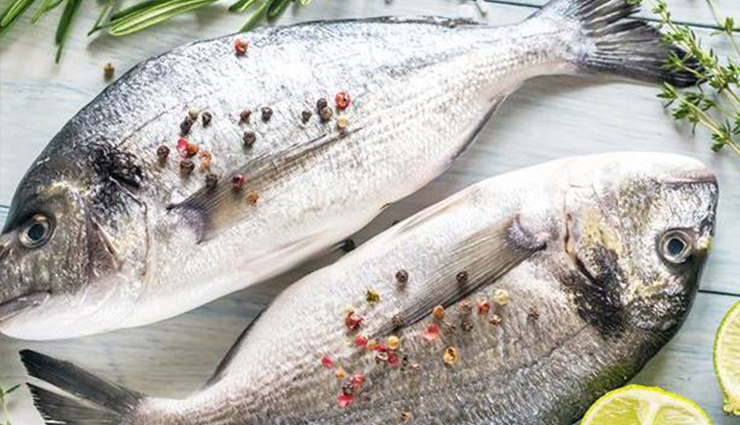
# Fatty Fish
Fatty fish is a nutritious food that can help maintain liver health. It is a good source of omega-3 fatty acids, which have anti-inflammatory and antioxidant properties that can protect the liver from damage and support its function. Here are some ways in which fatty fish can help maintain liver health:
Omega-3 fatty acids: Fatty fish such as salmon, sardines, and mackerel are rich in omega-3 fatty acids, which can help reduce inflammation in the liver and protect it from damage caused by free radicals.
Protein content: Fatty fish is also a good source of protein, which is essential for maintaining liver health. Protein helps the liver repair itself and regenerate new cells.
Vitamin D: Fatty fish is one of the few food sources of vitamin D, which can help protect the liver from damage and disease.
Reduced risk of liver disease: Consuming fatty fish regularly has been associated with a reduced risk of liver disease, including non-alcoholic fatty liver disease (NAFLD).
To incorporate more fatty fish into your diet, try adding it to your meals a few times a week. Grilling, baking, or broiling fatty fish are healthy ways to prepare it. However, it's important to keep in mind that some types of fatty fish may contain high levels of mercury, so it's best to consume them in moderation.
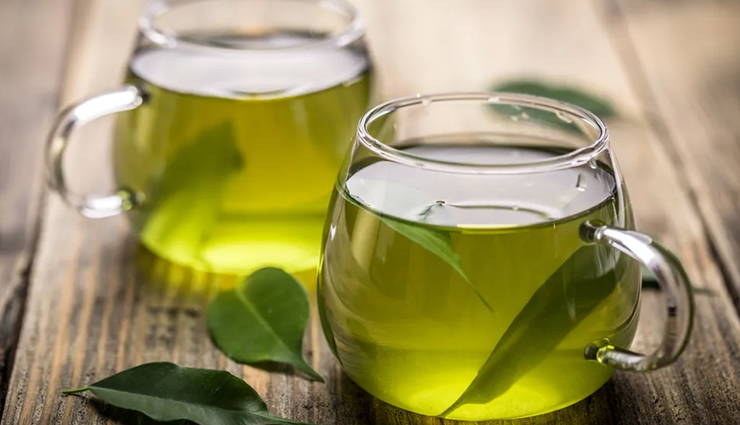
# Green Tea
Green tea is a popular beverage that can help maintain liver health. It contains antioxidants and other beneficial compounds that can protect the liver from damage and support its function. Here are some ways in which green tea can help maintain liver health:
Antioxidant properties: Green tea is high in antioxidants such as catechins, which can help protect the liver from damage caused by free radicals.
Anti-inflammatory properties: Green tea also has anti-inflammatory properties that can help reduce inflammation in the liver.
Reduced risk of liver disease: Consuming green tea regularly has been associated with a reduced risk of liver disease, including liver cancer and non-alcoholic fatty liver disease (NAFLD).
Improved liver function: Green tea may also help improve liver function by reducing oxidative stress and inflammation in the liver.
To incorporate green tea into your diet, you can brew it at home or find it in a variety of forms, including tea bags, loose leaf tea, or as an ingredient in supplements. It's important to keep in mind that green tea contains caffeine, so it's best to consume it in moderation.
These foods are essential for maintaining liver health and can be easily incorporated into your diet. By eating a balanced diet and avoiding excessive alcohol consumption, you can keep your liver healthy and functioning properly.





